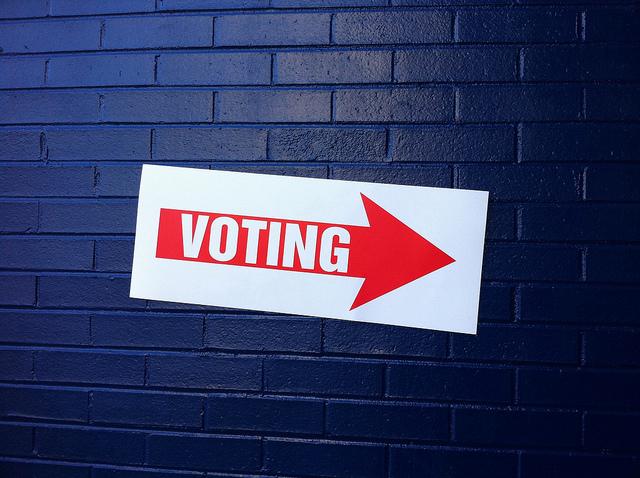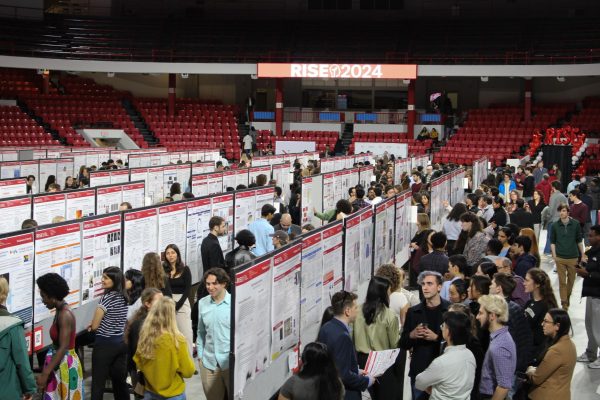Bostonians to vote on Community Preservation Act
November 3, 2016
Voters in Boston and 15 other Massachusetts towns will be able to vote Tuesday on a ballot question concerning whether to accept the Community Preservation Act (CPA). If passed, the CPA would add a surcharge to property taxes in order to collect money for a special municipal fund, which would be used for fund affordable housing, historic preservation and the construction of parks and open spaces.
Boston City Council voted to put the CPA measure on the ballot as a fifth referendum question on May 10. The bill was co-sponsored by Boston city councilors Michael Flaherty and Andrea Campbell, and Mayor Martin J. Walsh has expressed support for the act.
“Our city is growing and thriving, but success has brought challenges — housing costs being one of the greatest,” Walsh said in an April press release. “We’ve studied the impacts and benefits, and I believe the Community Preservation Act offers a balanced and timely strategy for helping Boston build affordable housing, invest in our parks and preserve Boston’s historic and inclusive character.”
If the majority of Boston residents vote yes on the CPA referendum question, a Community Preservation Committee will be formed to oversee the fund, according to Leila Quinn, a spokesperson for Campbell. The committee would consist of up to nine members and include mayor-appointed members from his cabinet and advocates from community organizations.
The CPA fund is designed to allocate money to projects in the three categories. A minimum of 10 percent of the money in the fund must be spent in each category, and the remaining 70 percent can be allocated in any amount to any of the categories.
One of the groups campaigning for the CPA is a group called Yes for a Better Boston. The group includes state leaders, labor unions and environmental and housing activists, according to Kate Norton, a spokesperson for the campaign.
“With the broad-based support we have, that sort of stretches across the geography of the city, different areas of focus of the city, different people, different types of people. We’re very hopeful it’s going to pass, and we’re getting good feedback from voters as we’re talking to them on the street,” said Norton.
The CPA was originally signed into law Sept. 14, 2000 by former Massachusetts Governor Paul Cellucci. Since then, 160 cities across the state have adopted the act.
Examples of projects funded by the CPA in other towns include the purchase of 30 acres of farmland for open spaces in Acton, the restoration of Depression-era murals at Gloucester City Hall and the preservation of hundreds of affordable rental units in Cambridge.
The surcharge on property tax ranges from 0.5 percent to 3 percent in towns with an active CPA. If passed, Boston’s CPA surcharge would be 1 percent. According to Flaherty, this means property taxes would increase an average of $24. The City of Boston has created an online-CPA tax calculator.
Some residents, like low-income and elderly homeowners, and those living in affordable housing developments would be exempted from paying the CPA surcharge.
Boston’s CPA fund revenue is estimated at about $20 million per year – $13 million coming directly from the property tax surcharge and $6 million to $7 million per year coming from a 30 percent state match for every dollar raised by the city.
State matching funds are raised through a surcharge collected on deed transfers during a property sale in the state.
According to Flaherty, Boston has missed out on $300 million in funds by not passing the CPA when it was originally on the ballot in 2001.
Critics of the bill include those who oppose an increase in taxes and some who say that the CPA increases inequality. All Massachusetts towns contribute to the state matching funds through a surcharge collected on deed transfers during all property sales in the state. However, only towns which are able to adopt the tax increases receive those matching funds.
For example, Cambridge has received 15 percent of state matching funds since it adopted the CPA in 2002, but its residents only contribute 1 percent of the money paid into the CPA fund, according to CommonWealth Magazine.
“We have no organized opposition at this point,” Norton said. “There’s no group that’s emerged in any sort of formalized way.”
Photo courtesy Justin Grimes, Creative Commons


















